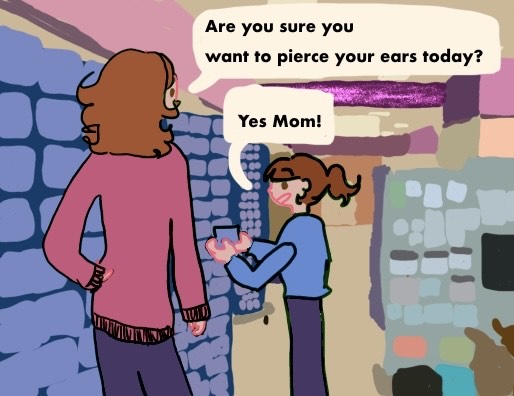Imagine being extremely proud of your Hispanic heritage as an American of color, but you are faced with criticism and made to feel like you are not worthy of being prideful for simply not speaking your first language, Spanish, fluently.
This is how many young Hispanic Americans feel when they are labeled as “no sabo kids.” “No sabo,” is an incorrect way to say “I don’t know” in the Spanish language. resulting to a rather insulting term used to judge Hispanic individuals who are not fluent in Spanish. This term is often used to embarrass the children of Spanish speaking parents.
Moreover, people use this term to try to minimize how in touch a Hispanic American is with their culture. In other words, they claim a person’s connection with their culture is based on their proficiency to speak their home country’s language.
There are a collection of reasons why some Hispanic Americans do not speak Spanish. Some Hispanic parents want to “protect” their children. According to the FBI’s 2022 Hate Crime Statistics, a total of 11,288 hate crime incidents took place with 12.8% of them impacting Hispanic or Latino individuals. Not only have many hate crimes taken place recently, but possibly an even greater amount of them took place when Hispanic parents first arrived in the United States.
In my experience, I’ve seen my grandparents not wanting to speak in public due to their strong accents when speaking English. In addition, they feel ashamed when they ask for me to translate or speak in public for them. This comes from the trauma of encounters they have had with close minded people full of microaggressions, which have been deeply rooted in today’s society.
Another reason why Hispanic Americans were possibly not taught or are not fluent in Spanish is the importance of education and the goal to achieve the “American Dream.” Hispanic and Latino parents instill the importance of education for their children from a very early age. This is rooted in the hope for their children to live a better, easier and more successful life. In their eyes, learning and perfecting English is a key aspect to achieving that dream.
Hispanic parents have been consumed by the goal of the “American Dream,” resulting in the priority to speak English at times, causing Spanish to be lost along the way. The English language is associated with opportunities. If you speak English, and speak it well, it will secure your spot to being successful in America.
I see this frequently in families today. My own family has shown me the importance of speaking not only English in America, but being bilingual. They have raised me preaching that being bilingual is a gift, and I will be able to use it to help many. I am extremely grateful I have been raised with that mindset, but I can identify the difficulty in balancing two languages.
For the reason that the term “No sabo” is used to insult people, the Hispanic and Latino community need to make it a priority to change the negative connotation and instead make Hispanic Americans feel comfortable to learn Spanish and grow with their culture. While speaking your country’s native language should not scale your level of how in touch you are with your culture, speaking it is an important factor in being connected to it.
Not speaking Spanish does not make you less Latino. In addition, appreciation to those who are trying to learn Spanish will help the feelings of judgment and shame change to encouragement and hope.
Language reclamation represents a path to growth. While some culture is lost when language is out of the picture, the goal for some to learn is just as important.
Not speaking Spanish does not make you less Hispanic, it does not make you white washed, and it does not make you less in touch with your roots. Rather, it creates the opportunity for you to be an example to others who feel they are not entitled to be prideful of their culture.







